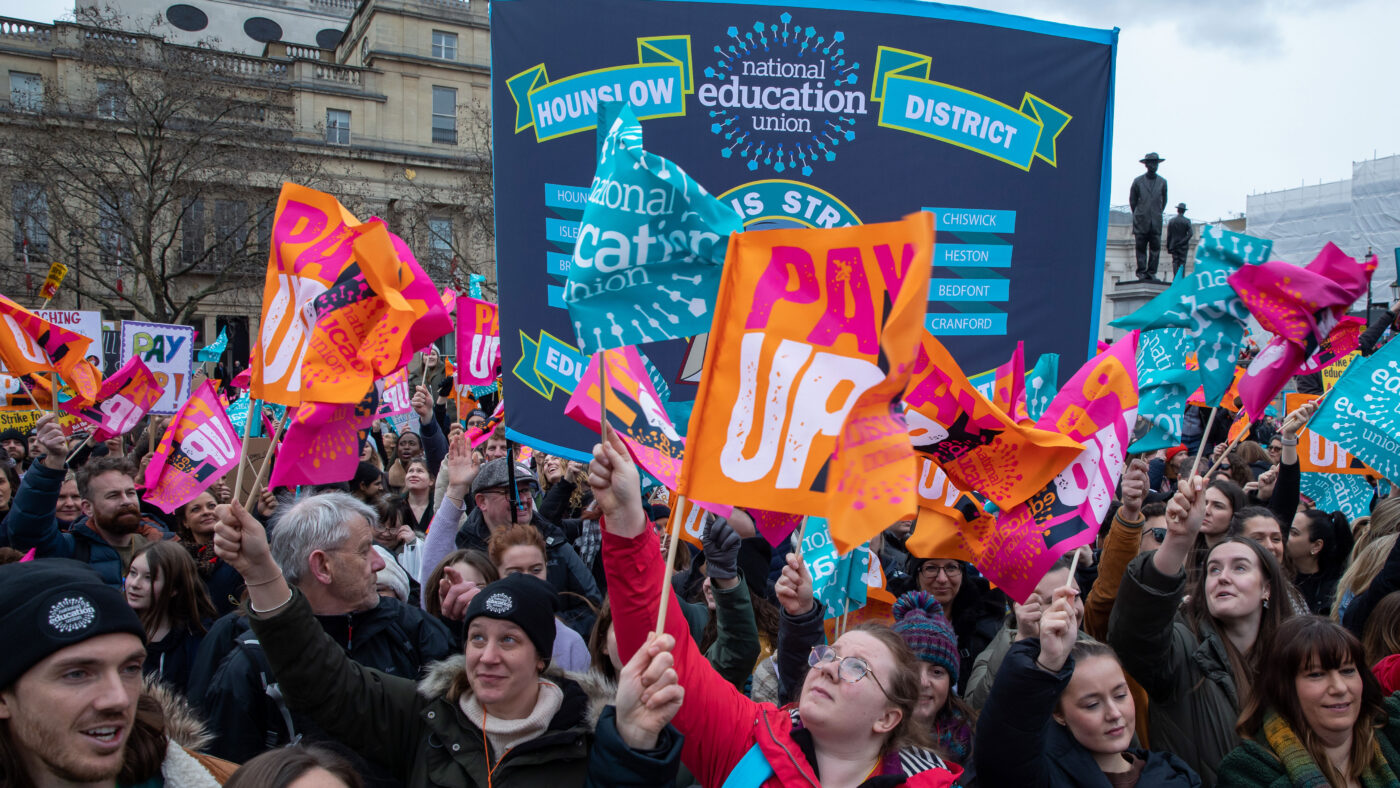Well, the first ballot on the government’s teacher pay offer is in and the result is as expected: it’s been rejected, and decisively too. Two-thirds of NEU members at England’s state schools voted, of whom 98% rejected the proposal.
The scale of the result shows the strength of feeling right now, especially when you consider that only 9% – yes, nine per cent – of NEU members took part in the recent election for the union’s new General Secretary, and they only just met the thresholds in the strike ballots in January.
The NEU claim that 57,000 people have joined them in recent months as a result of the hard line they have taken towards the pay negotiations, and it’s probably safe to assume that these new members did so in order to be able to strike in support of this.
Other unions will announce the results of their pay ballots from tomorrow afternoon. They will also probably reject it, but as the NEU got there first it’s a moot point: the deal is now off the table.
What happens from here then?
First up, the NEU has announced two more strike dates, April 27 and May 2. This means more disruption for pupils whilst their striking teachers can enjoy a nice long Bank Holiday weekend. The union says they will ensure exam groups are supported, but let’s wait and see how that looks in practice.
In the meantime it’s likely that the other unions will re-ballot their members about industrial action, while the Government is sticking to its position that their original offer is off the table. That means the £1,000 lump sum for all teachers for this academic year is now gone, and they are going to wait for the STRB, the independent pay body, to decide what the pay rise for next year should be.
Will the Government’s position hold? Will the STRB come back with a proposal that the unions will accept? To take those questions in order: I don’t think so, and probably not.
It’s messy, and while there will absolutely be a solution one way or another, I’m not sure yet what it will be or how it will come about.
Ongoing strike action isn’t sustainable. Over time the financial hit of lost pay to those striking adds up, as does the disruption to pupils and their families.
And it’s primarily from parents that ministers will face growing pressure to find a settlement. Fortunately there is now wiggle room as the cash proposed for a lump sum this year (about £500m overall) can now go towards a higher pay rise next year. Of course, this means the base case for the following year will be higher than before, but next year is a long way away right now and a period of calm will allow the Government to present this as another problem fixed. And of course, inflation should be much lower in 12 months time, and so the pressure for another big increase lower than it is now.
In the meantime, as it has been throughout all of this, it’s the kids losing out the most. I hope something can be found as soon as possible that people will accept without too much more positioning on all sides, but it still feels as though teachers will need to get more frustration out of their system before this happens.
Click here to subscribe to our daily briefing – the best pieces from CapX and across the web.
CapX depends on the generosity of its readers. If you value what we do, please consider making a donation.


